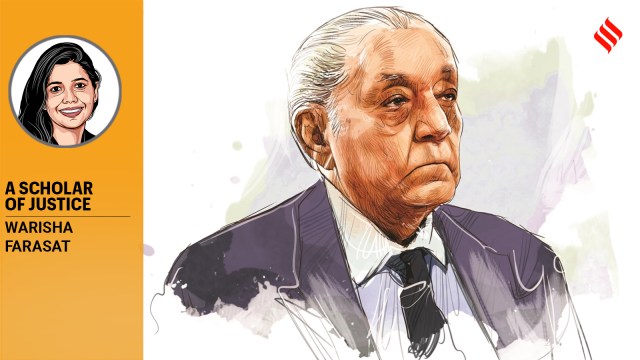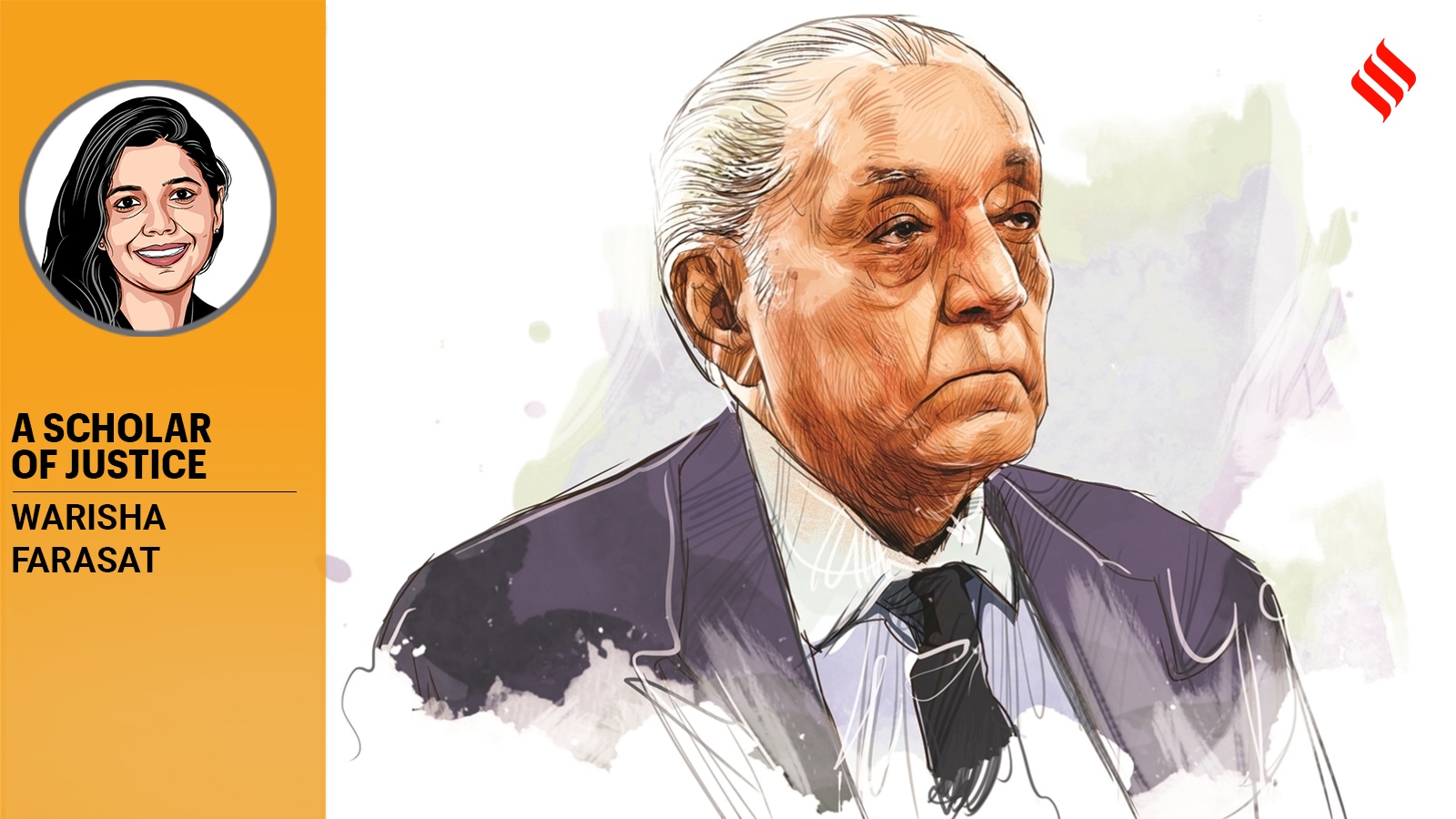
Abdul Ghafoor Noorani is no more. But people like Noorani sahab don’t die. He will live through his stellar body of work and his contributions as a scholar who defended the ideals of justice enshrined in the Constitution. He will undoubtedly be remembered not only for his unmatched intellectual brilliance but also for his unquestioned moral rectitude.
Born in 1930, Noorani sahab witnessed the partition of the subcontinent and the constitution-writing process as a young man. He started his career at the Bombay High Court. As he became an authoritative voice on constitutional issues, he was often consulted by the political class on complex problems.
As a young law student, I was first introduced to Noorani sahab through his newspaper columns where he dealt with issues ranging from constitutional law to geopolitics. Along with a meticulous analysis of the legal landscapes, his writings were always replete with anecdotes that made the most complex aspects of constitutional law easily accessible. In fact, this careful legal analysis punctuated with anecdotes was a hallmark of his writings. He had perfected the art of weaving in constitutional assembly debates with contemporary political questions, making it impossible for the forces that misrepresented the intent of the founders of our Constitution to defend their political actions.
Unlike his writings, Noorani sahab wasn’t easily accessible in person. However, I was fortunate to know him and benefit from his legal and political scholarship. I met him recently in his small Napean Sea Road apartment in Bombay. The apartment itself is a testament to his inimitable life and legacy. On the shelves, there were too many books to count. From Ibn Batuta’s travelogues, to books on the Palestine question, to the original editions of H M Seervai, it was all there. In one corner, his own books were neatly stacked.
Noorani sahab was the biggest living expert on Kashmir. His work on Article 370 (Article 370: A Constitutional History of Jammu and Kashmir) was the only book cited several times during the recent proceedings of the constitution bench of the Supreme Court. His book The Kashmir Dispute is a meticulously researched work which records every twist and turn in this vexed issue with irrefutable evidence. He had first-hand knowledge of every aspect of the Kashmir issue, having closely worked with or followed every major actor in the dispute. He had even represented Sheikh Mohammad Abdullah when he was incarcerated by the Union government.
His scholarship, however, wasn’t limited to Kashmir or the courtroom. Noorani sahab was one of the most formidable scholars of India’s diplomacy. On the Sino-India relationship, his book India-China Boundary Problems, 1846-1947: History and Diplomacy is a must-read. Similarly, his works The Gulf Wars and Brezhnev Plan for Asian Security: Russia in Asia are treasure troves on geopolitics, and his book Citizens’ Rights, Judges and State Accountability is an important resource on civil liberties. The range of Noorani sahab’s scholarship could be understood by the wide-ranging issues he dealt with in his books, including Islam and Jihad, Badruddin Tyabji and Jinnah and Tilak: Comrades in the Freedom Struggle, as well as extensive work on the RSS, Savarkar and Hindutva.
What distinguished Noorani sahab was his moral courage. His aversion to sycophancy was legendary, and he always said things as they needed to be said. This is why, despite his great intellectual prowess and integrity, he was never a darling of any government. Over his decades of work, he spared no political dispensation in defence of the core values of the Constitution.
Noorani sahab’s love for food was second only to his love for constitutional law. It is said that there was not a single kebab take-out joint left in Mumbai from where he had not ordered his favourite galouti or kakori kebabs. He had a soft spot for Kashmiri food, and relished the traditional wazwan.
Noorani sahab embodied the spirit of the secular and progressive India that our forefathers imagined. Merely calling him prolific does injustice to his writings and legacy. His rigour was unparalleled, and he dedicated his life to recording legal and political history over many decades. In this era of smartphones, and social media feeds, when uninformed polemical debates replace real conversation or engagement, there is much to learn from a man who never used email or a computer. Noorani sahab taught us that there is no shortcut to excellence or empathy. I hope that those who cherish the fundamental principles of our Constitution, rule of law and secular ethos celebrate Noorani sahab’s life and legacy by setting up a foundation to keep his memory alive and make his work available to the next generations. May you rest in peace Noorani sahab.
The writer is a lawyer practising in Delhi



